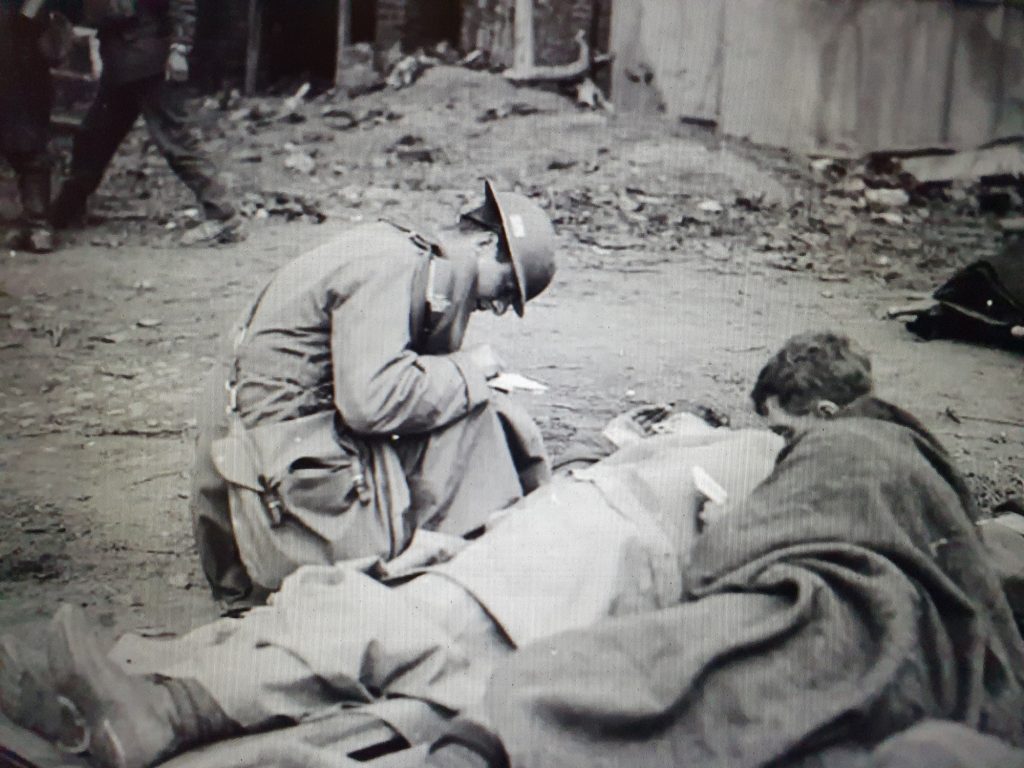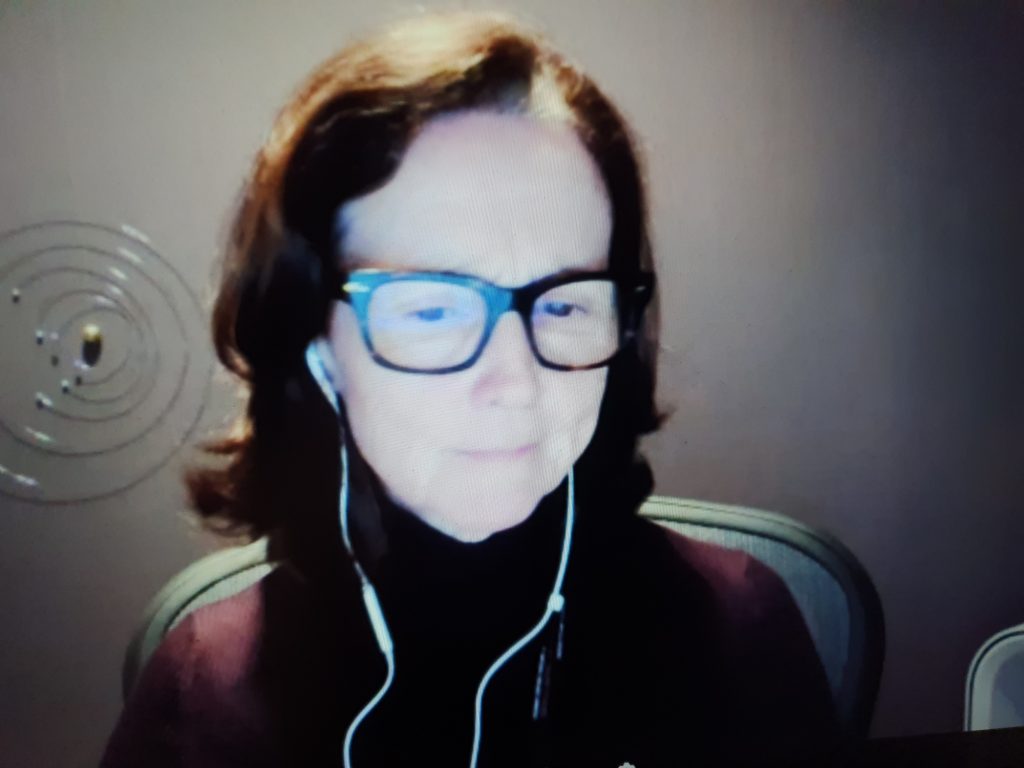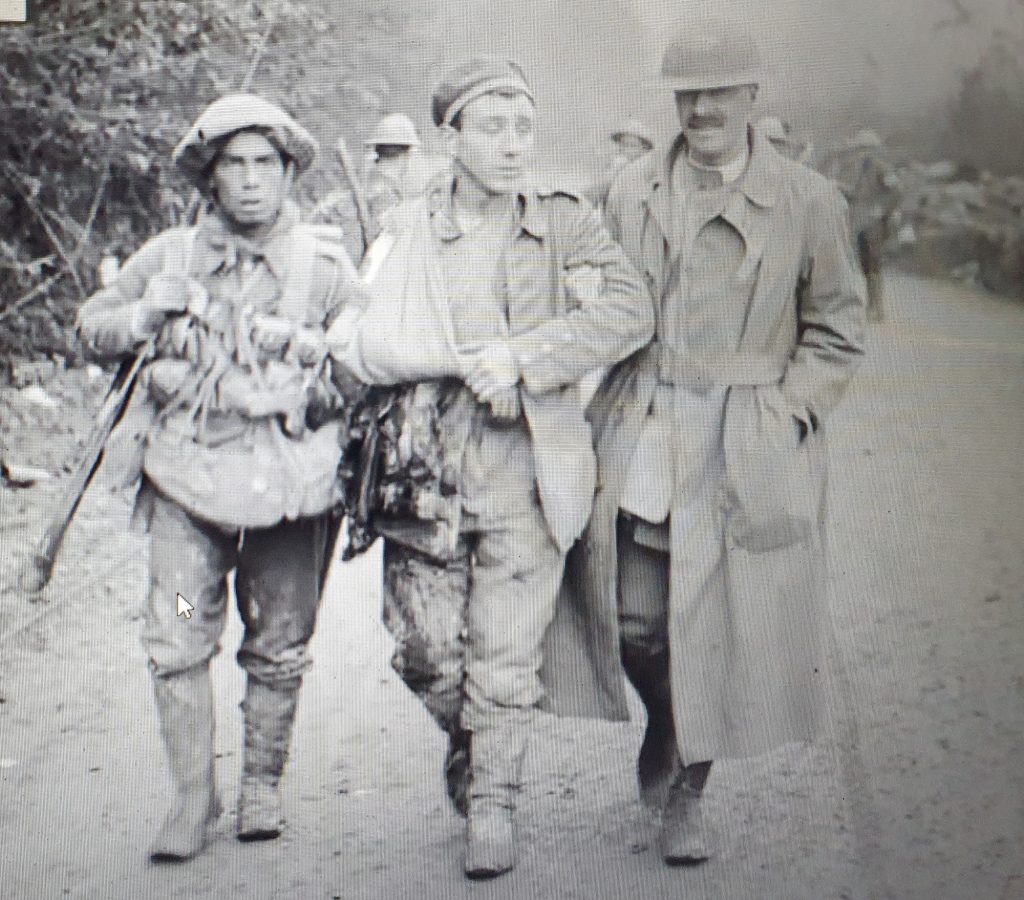Tonight I learned that army chaplains did more than just tend their flock during the First World War. They were pretty much indispensable. They would be ready to lend a hand doing anything that was required. They would be everywhere: on the front line, in the casualty clearing stations and in the barracks. Ignoring the imaginary friend nonsense, these chaps were pretty selfless.

They were usually there when there was no hope for a wounded soldier. The surgeons and doctors would have left these men to attend to the less fatal cases. It was the chaplains and nurses who gave the men solace in their final moments.
The chaplains would also carry important messages or look after things for the wounded. In one case, a soldier asked a chaplain to care for his wedding ring while he was being operated on. The chaplain wore the ring, taking care of it, until the man was well enough to wear it again.
Dr Emily Mayhew is historian in residence in the Department of Bioengineering at Imperial College, London. Tonight she gave a lecture about Chaplains of the Western Front for the WFA. And it was excellent.

Sadly, I missed Dr Mayhew’s last lecture. Now, I really wish I hadn’t.
To be honest, I was a bit worried about tonight. After all, for an atheist, a lecture about army chaplains could be a bit ‘meh’ but it really wasn’t. There was very little god about it. Which, if you think about the conditions on the Western Front, makes sense given god wasn’t there anyway.
I needn’t have worried. Men like Rev Charles Doudney, Rev TB Hardy and Father John Lane Cox, while working as ‘men of god’ were actually men of compassion, courage and kindness. They didn’t care about what god you believed in (if any) they saw the men in their care as human beings, deserving of anything they could do to help. There was no judgement.
Something I hadn’t realised was one of the benefits of a chaplain was the fact that he was inevitably going to be multi-lingual. They almost always learned foreign languages in order to carry out missionary work. Or just to work in foreign countries. These language skills came in very handy when the chaplains had to care for French, Belgian, Russians, even German soldiers.
These men felt they had “a duty to serve in every way.” And they did just that. Amazing.

Dr Mayhew has a number of books out. One that is very readable is Wounded: The Long Journey Home From the Great War. It tells the story of, you guessed it, the wounded. You can buy a copy here.


